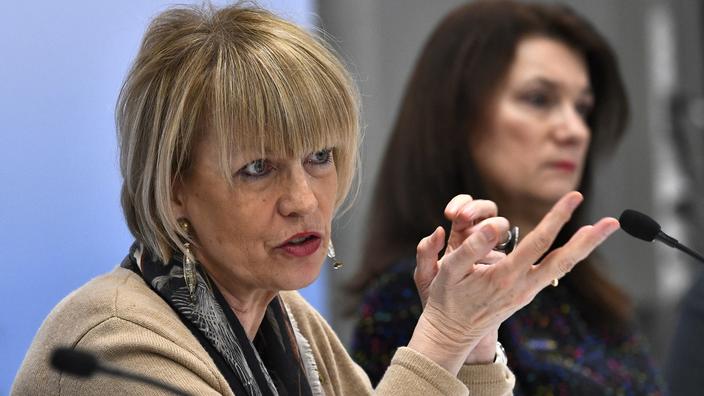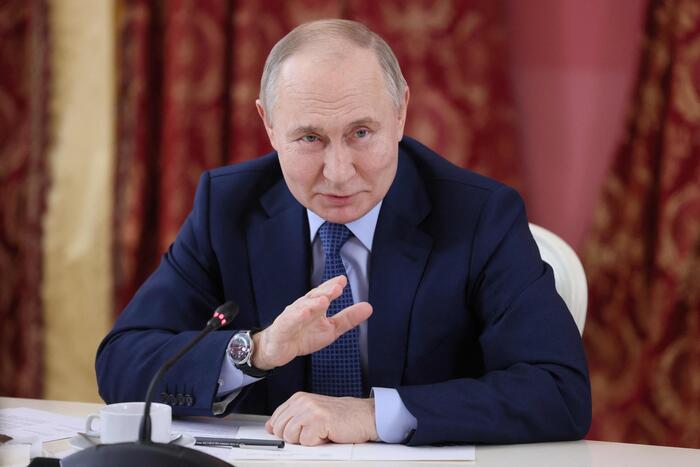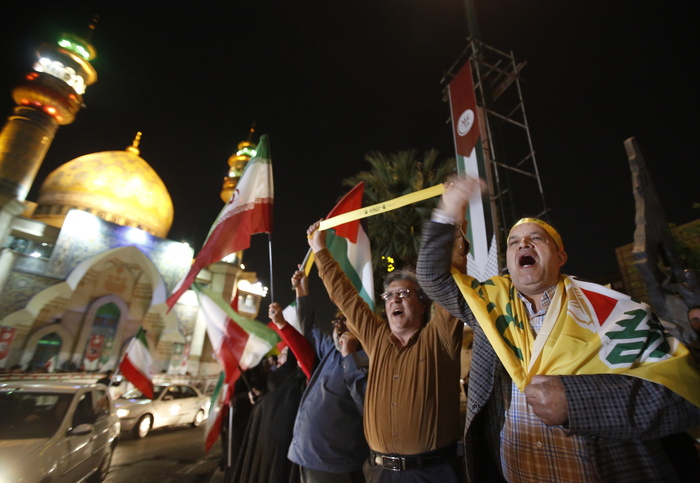After Geneva and Brussels, it's time for the third and last sequence of an intense diplomatic ballet to defuse the risk of a conflict in Ukraine: the OSCE began the debates Thursday, January 13 in Vienna, stressing
the "urgency
" to relaunch dialogue on security in Europe.
Read also Ukraine: "no question of negotiating under pressure", according to the head of European diplomacy
“
The situation in the region is perilous.
It is imperative to find, through diplomatic channels, a way to halt the escalation and to start rebuilding trust, transparency and cooperation
, ”Secretary General Helga Schmid said at the opening of the Permanent Council, referring to "
An urgent need
".
The Organization for Security and Cooperation in Europe (OSCE), a multilateral platform for East-West discussions resulting from the Cold War, "
is a unique place for that
", she insisted.
“
Each of the 57 Member States has a seat around the table
”.
This body is indeed a rare forum of exchange of which the United States and Russia are both members.
An intense "risk of war"
Poland, which takes over the annual rotating presidency after Sweden, has also expressed concern, as have other Eastern European countries formerly under Moscow's rule. “
It seems that the risk of war in the OSCE area has never been so intense in the past 30 years
,” said Polish Minister of Affairs Zbigniew Rau. "
A sizeable challenge for the Organization, the aim of which is precisely to ban war from Europe
". Westerners accuse Moscow of having massed in recent weeks some 100,000 soldiers, tanks and artillery on the border with Ukraine to prepare an attack against this country, an intention denied by the Russian authorities.
These Russian troop movements "
are part of the pressure
" exerted by Moscow to obtain satisfaction on its demands, but there is "
no question of negotiating under pressure
", said Thursday the head of European diplomacy Josep Borrell.
He was speaking before the start of an informal meeting with EU defense ministers in Brest (western France), aimed at "
developing the position of the European Union (...) in the face of the crisis
”.
"
We must resolutely reject blackmail and ensure that attacks as threats never bear fruit
," said US Ambassador to the OSCE Michael Carpenter.
"It is impossible for us to know what is going on"
For its part, Moscow affirms that this military deployment is a reaction to the presence considered growing and threatening of NATO in what it considers to be its zone of influence. Russia also refuses any enlargement of the Atlantic Alliance to countries which it considers to be within its sphere of influence, such as Ukraine. Russian Representative Alexander Lukachevich is scheduled to speak to the media in Vienna in the afternoon.
After tense discussions in Geneva between the American and Russian vice-ministers of foreign affairs, Wendy Sherman and Sergei Riabkov, NATO and Moscow had made Wednesday in Brussels the observation of their deep "
differences
" on security in Europe. "
Yes, our positions are poles apart (with Moscow) but that does not mean that we cannot find common ground
", underlined Michael Carpenter on the independent Russian television channel Dozhd. The challenge is to "
determine in what forms the discussion can be deepened in the coming months
".
On the ground, conditions worsened for OSCE observers in areas controlled by pro-Russian separatists in Ukraine, the American ambassador also lamented, saying he was "
extremely worried
".
"
The surveillance missions have so far detected nothing abnormal on the territory
" but at the border, "
it is impossible for us to know what is happening
", he warned.
Read also Ukraine: Moscow points to differences with NATO
Since 2014, the Organization has been responsible for monitoring compliance with the Minsk peace accords in rebel eastern Ukraine.
NATO chief Jens Stoltenberg was also alarmist on Wednesday.
“
The risk of a new armed conflict is real.
It is up to Russia to come out of the crisis.
It must engage in de-escalation
, ”he argued.









